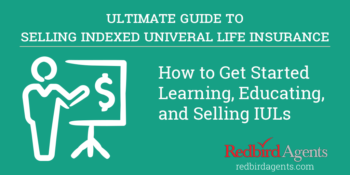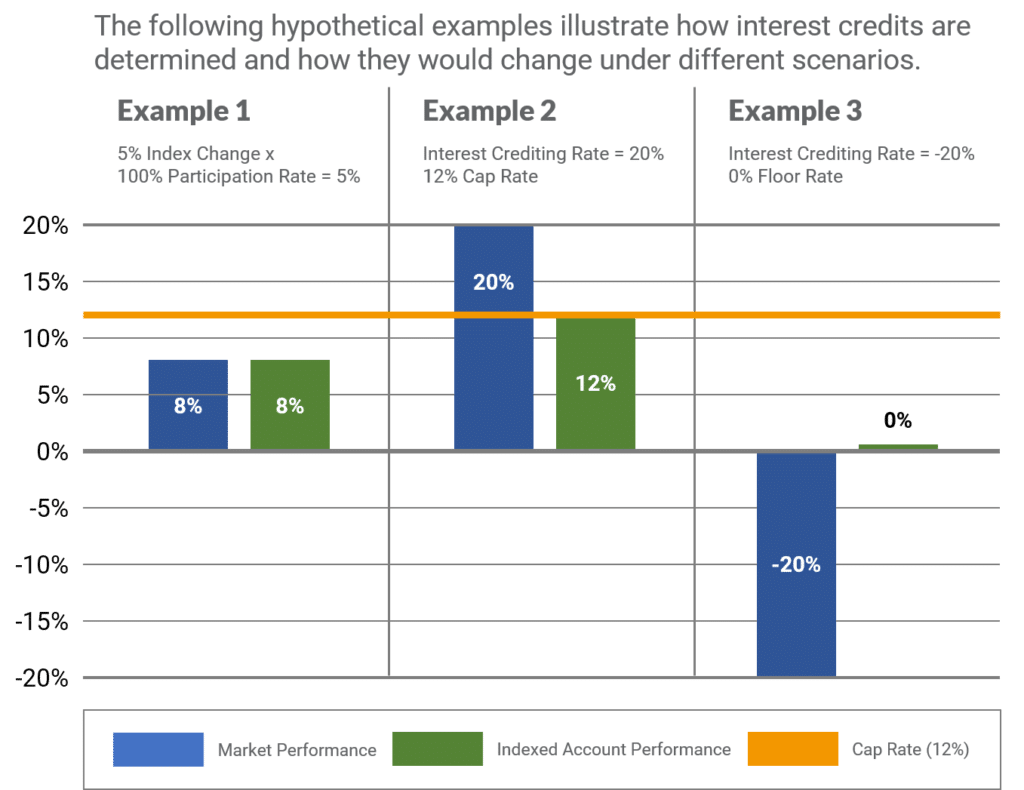All Categories
Featured
Table of Contents
1), typically in an effort to beat their group averages. This is a straw male disagreement, and one IUL people enjoy to make. Do they contrast the IUL to something like the Lead Total Amount Stock Exchange Fund Admiral Shares with no lots, an expense ratio (ER) of 5 basis factors, a turn over proportion of 4.3%, and an exceptional tax-efficient document of distributions? No, they compare it to some terrible proactively handled fund with an 8% lots, a 2% EMERGENCY ROOM, an 80% turn over ratio, and an awful document of temporary resources gain distributions.
Mutual funds often make annual taxable circulations to fund owners, even when the value of their fund has actually dropped in value. Common funds not just need income reporting (and the resulting annual tax) when the common fund is increasing in worth, yet can additionally impose income tax obligations in a year when the fund has gone down in value.
That's not just how shared funds work. You can tax-manage the fund, gathering losses and gains in order to minimize taxable distributions to the investors, yet that isn't in some way mosting likely to transform the reported return of the fund. Just Bernie Madoff types can do that. IULs stay clear of myriad tax obligation traps. The possession of shared funds may require the shared fund proprietor to pay projected taxes.
IULs are simple to position to ensure that, at the proprietor's fatality, the recipient is not subject to either income or inheritance tax. The exact same tax obligation decrease methods do not work nearly too with shared funds. There are various, often costly, tax obligation traps linked with the timed trading of common fund shares, catches that do not apply to indexed life Insurance.
Possibilities aren't extremely high that you're going to be subject to the AMT due to your mutual fund circulations if you aren't without them. The remainder of this one is half-truths at ideal. While it is real that there is no income tax obligation due to your successors when they acquire the profits of your IUL plan, it is also real that there is no revenue tax obligation due to your beneficiaries when they acquire a shared fund in a taxable account from you.
Universal Life Insurance Comparison
The government inheritance tax exception limitation mores than $10 Million for a pair, and growing every year with rising cost of living. It's a non-issue for the vast bulk of doctors, much less the rest of America. There are far better methods to prevent estate tax issues than buying investments with low returns. Mutual funds may create revenue taxation of Social Safety benefits.

The growth within the IUL is tax-deferred and may be taken as free of tax income by means of fundings. The plan owner (vs. the mutual fund supervisor) is in control of his or her reportable earnings, hence enabling them to reduce or even get rid of the taxation of their Social Safety benefits. This one is excellent.
Right here's an additional marginal concern. It holds true if you buy a common fund for state $10 per share right before the distribution day, and it disperses a $0.50 circulation, you are after that going to owe tax obligations (possibly 7-10 cents per share) although that you have not yet had any type of gains.
In the end, it's really concerning the after-tax return, not exactly how much you pay in taxes. You are mosting likely to pay even more in tax obligations by utilizing a taxable account than if you get life insurance policy. Yet you're additionally most likely going to have even more cash after paying those taxes. The record-keeping needs for owning common funds are significantly a lot more intricate.
With an IUL, one's documents are kept by the insurance coverage business, copies of yearly declarations are sent by mail to the proprietor, and distributions (if any kind of) are amounted to and reported at year end. This one is additionally type of silly. Of training course you need to maintain your tax obligation documents in case of an audit.
Index Universal Life Vs Whole Life
All you need to do is push the paper into your tax obligation folder when it turns up in the mail. Hardly a factor to get life insurance policy. It's like this person has actually never ever purchased a taxed account or something. Shared funds are typically part of a decedent's probated estate.
On top of that, they undergo the delays and costs of probate. The proceeds of the IUL plan, on the other hand, is constantly a non-probate circulation that passes outside of probate straight to one's called beneficiaries, and is as a result not subject to one's posthumous creditors, undesirable public disclosure, or similar delays and expenses.
Medicaid incompetency and lifetime revenue. An IUL can offer their proprietors with a stream of income for their whole lifetime, regardless of exactly how long they live.

This is advantageous when organizing one's events, and transforming assets to income prior to an assisted living home arrest. Shared funds can not be transformed in a similar fashion, and are usually thought about countable Medicaid properties. This is an additional dumb one advocating that poor people (you know, the ones who need Medicaid, a government program for the bad, to pay for their retirement home) should utilize IUL as opposed to mutual funds.
Principal Group Universal Life
And life insurance policy looks awful when compared relatively against a pension. Second, individuals who have cash to purchase IUL above and past their pension are going to have to be awful at handling money in order to ever before get approved for Medicaid to pay for their assisted living home prices.
Persistent and incurable illness rider. All policies will certainly permit an owner's easy accessibility to cash money from their plan, commonly forgoing any kind of surrender fines when such people suffer a major ailment, need at-home treatment, or come to be constrained to a retirement home. Mutual funds do not give a similar waiver when contingent deferred sales charges still use to a mutual fund account whose owner needs to offer some shares to fund the prices of such a remain.
Equity Index Insurance
Yet you reach pay even more for that benefit (motorcyclist) with an insurance plan. What a lot! Indexed universal life insurance coverage offers fatality benefits to the beneficiaries of the IUL owners, and neither the owner neither the beneficiary can ever before shed cash due to a down market. Mutual funds provide no such guarantees or fatality advantages of any kind.
Now, ask on your own, do you really require or want a death advantage? I certainly do not require one after I get to monetary freedom. Do I want one? I intend if it were affordable enough. Certainly, it isn't low-cost. Generally, a purchaser of life insurance coverage spends for the real cost of the life insurance coverage advantage, plus the prices of the plan, plus the profits of the insurance company.
New York Life Iul
I'm not entirely certain why Mr. Morais included the entire "you can not shed money" again right here as it was covered fairly well in # 1. He simply wished to duplicate the very best selling factor for these points I intend. Again, you don't shed small bucks, however you can shed genuine dollars, along with face significant chance expense as a result of reduced returns.

An indexed universal life insurance policy proprietor might trade their plan for a completely various plan without causing earnings taxes. A mutual fund proprietor can not move funds from one shared fund business to an additional without selling his shares at the former (thus causing a taxable event), and redeeming new shares at the last, frequently subject to sales charges at both.
While it holds true that you can trade one insurance plan for another, the factor that people do this is that the initial one is such a horrible policy that also after getting a brand-new one and undergoing the early, negative return years, you'll still come out ahead. If they were sold the appropriate policy the initial time, they should not have any kind of need to ever before trade it and undergo the very early, negative return years once again.
Latest Posts
Universal Life Insurance Rate
Universal Life Insurance For Business Owners
Guaranteed Universal Life Policy